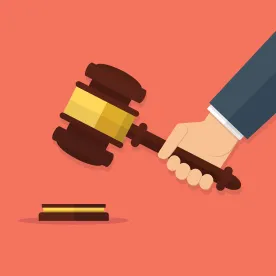On October 31, 2017, two former executives from General Cable Corporation (“GCC”) filed a motion to compel Morgan Lewis & Bockius LLP (“Morgan Lewis”) to produce interview memoranda and notes created during an internal investigation of GCC that were subsequently provided to the SEC and an independent auditor. In S.E.C. v. Herrera, et al., No. 17-20301 (S.D. Fla. filed Jan. 24, 2017), the government alleged that Mathias Francisco Sandoval Herrera (“Herrera”) and Maria D. Cidre (“Cidre”), acting as CEO and CFO of the Latin American operations of GCC, violated various securities laws when they “actively concealed from GCC executive management material inventory accounting errors at the company’s subsidiary in Brazil, including the overstatement of inventory by tens of millions of dollars and allegations of a massive theft by GCC Brazil employees.”
GCC, a global manufacturer of copper, aluminum, and fiber optic wire and cable products, announced in October 2012 that “it had identified accounting errors relating to inventory at its Brazil operations, that its previously issued financial statements for 2009-2011, audited by [Deloitte & Touche LLP], should not be relied upon, and that it intended to issue a restatement of financials.” Following this announcement, GCC retained Morgan Lewis to conduct an internal investigation, which consisted of interviewing more than three dozen witnesses, many of which were conducted in Brazil, preparing notes and memoranda of those interviews, and preparing memoranda related to other aspects of the investigation. “After retaining Morgan Lewis, GCC reported the accounting errors to the SEC, which launched its own investigation . . . . [that] led to a Cease and Desist Order against GCC in December 2016, which required the payment of a civil monetary penalty in the amount of $6,500,000.”
In their motion to compel, the defendants state that during the internal investigation, Morgan Lewis “regularly communicated with the SEC, voluntarily produced documents, and routinely made Brazil-based witnesses available for interviews with the SEC.” The defendants allege that Morgan Lewis shared work product with the SEC both orally and in writing, and with this work product, the SEC had a “decided advantage” in the litigation by being able to “focus its investigation and decide which of the nearly 40 witnesses – many of whom where GCC employees in Brazil – to interview and from whom to elicit sworn statements during the investigation.” Additionally, during Morgan Lewis’ internal investigation, “Deloitte independently formed a forensic team to assess the sufficiency of the Morgan Lewis investigation.” Deloitte served as GCC’s independent auditor and issued unqualified opinions on GCC’s financial statements during the relevant time period. The defendants state that Deloitte had reason to believe that it would be charged by the SEC in connection with its audits of GCC and that Morgan Lewis “regularly shared its work product” with Deloitte, both orally and in writing.
In light of these disclosures, the defendants served Morgan Lewis with a subpoena seeking, among other items, notes and memoranda from Morgan Lewis’ witness interviews. In response, Morgan Lewis “declined to produce any documents on the basis of privilege, including the attorney-client privilege, the work-product doctrine, and the certified public accountant-client privilege.” While the defendants do not dispute that the interview memoranda were prepared by Morgan Lewis in anticipation of litigation, they argue that Morgan Lewis waived privilege when it provided written interview notes and memoranda to the SEC, an adversarial investigative agency, as well as oral downloads of each. As for documents and information shared orally with Deloitte, the defendants concede that the majority of courts have held that independent or outside auditors typically share a common interest with the corporation for purposes of the work-product doctrine and waiver analysis, but argue that in the present case, Deloitte does not share a common interest with GCC due to the fact that Deloitte was potentially a target of the SEC. Specifically, defendants argue that “Deloitte was a potential adversary to GCC because Deloitte was motivated to claim that GCC personnel had misled Deloitte regarding accounting practices at GCC[,]” and “Deloitte was a potential conduit of information to the SEC in an effort to avoid or minimize its own liability.”
In opposition, Morgan Lewis makes three primary arguments as to why it should not be compelled to produce its interview memoranda and notes: (1) courts strong disfavor ordering the production of such materials; (2) defendants failed to demonstrate that Morgan Lewis waived the work product protection; and (3) defendants failed to demonstrate a substantial need for these materials. As an initial matter, Morgan Lewis notes that the materials sought are neither transcripts nor witness statements, but rather are attorney summaries of relevant information derived from witness interviews. Morgan Lewis relies on the Supreme Court’s Upjohn decision to argue that “‘[f]orcing an attorney to disclose notes and memoranda of witness’ oral statements is particularly disfavored because it tends to reveal the attorney’s mental processes[,]” and absent a showing of waiver, defendants must show a substantial need for the materials to prepare a defense.
As for defendants’ waiver argument, Morgan Lewis argues that the PowerPoint presentation prepared for the SEC is not work product, but a collection of facts and therefore the issue of waiver is inapplicable in that instance. In addition, Morgan Lewis contends that “the oral conveyance of information derived from interviews does not waive the work product protection as to the underlying attorney notes and memoranda[,]” and if a waiver has occurred, the waiver does not extend beyond the specific disclosures made. As for the disclosures made to Deloitte, Morgan Lewis argues that the oral conveyance or actual provision of work product to a company’s auditors does not waive the work product protection.
Finally, Morgan Lewis states that defendants have failed to show a substantial need for the sought after materials. Morgan Lewis argues that a speculation that the passage of time has causes witness memories to fade does not rise to a level that overcomes the work product protection. In any event, defendants are in possession of the 400,000-plus documents that General Cable produced to the SEC, which can be used to refresh the recollections of the witnesses.
We will monitor the pending motion and report on further developments.





 />i
/>i

